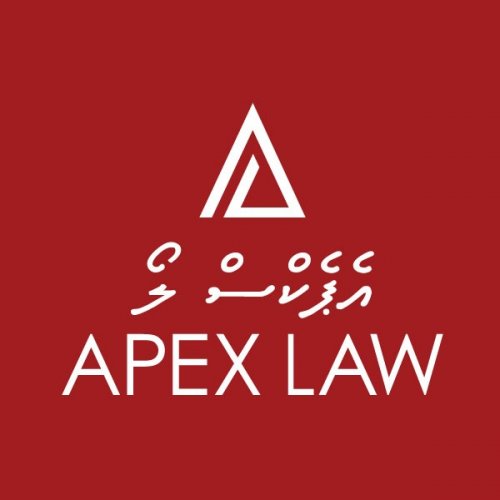Best Civil Rights Lawyers in Maldives
Share your needs with us, get contacted by law firms.
Free. Takes 2 min.
Or refine your search by selecting a city:
List of the best lawyers in Maldives
About Civil Rights Law in Maldives
Maldives, an island nation, is progressive in its approach towards the protection of Civil Rights, enshrined in its 2008 Constitution. The Constitution guarantees fundamental rights such as freedom of thought and opinion, freedom of expression, closely aligning with international standards including the Universal Declaration of Human Rights. Despite these protections, it’s important for citizens and residents to understand, exercise, and guard these rights vigilantly. Recent years have seen growing concern over threats to these rights, making it crucial to familiarize oneself with the country's Civil Rights Law.
Why You May Need a Lawyer
In various circumstances, you may require legal assistance to assert your civil rights in Maldives. This could include cases of suspected discrimination based on race, religion, belief, or social or political status. Incidents of alleged rights infringement by government authorities or even private entities might also need legal aid. You might be unaware of your rights or unable to navigate the legal system alone, thus requiring the help of a lawyer. A lawyer can provide guidance, defend your rights in court, or represent you in legal processes like filing a complaint or launching an appeal.
Local Laws Overview
The Constitution of Maldives is the paramount law that guarantees and protects civil rights in the country. It establishes principles such as non-discrimination, freedom of expression and opinion, and the right to life. It also sets out rules for fair trial, respecting the rights of the accused and witnesses. Among major laws, Anti-Torture Act, and Domestic Violence Prevention Act play a key role in securing civil rights related to personal security. Other relevant acts include the Employment Act, ensuring work-related rights, and the Rights of the Child Act, safeguarding children's rights.
Frequently Asked Questions
What rights are considered 'Civil Rights' in the Maldives?
Civil Rights include the right to life, freedom of expression and opinion, non-discrimination, right to a fair trial, and the right to personal security and privacy among others.
What can a Civil Rights Lawyer do?
A Civil Rights lawyer can provide assistance, advice, and representation in asserting and defending your civil rights in various situations. They can lead legal processes, like filing complaints or appeals, and act as your advocate in court.
How can I identify a Civil Rights violation?
Identifying a violation involves understanding your rights as defined by the constitution and other laws. If you believe your rights have been denied or infringed upon due to discrimination or any form of unjust treatment, you likely experienced a civil rights violation.
What action can be taken if my Civil Rights are violated?
If your civil rights have been violated, legal recourse is available. You can consult a lawyer, file a complaint with the relevant authorities, or bring the matter to court if necessary.
Are Civil Rights of foreigners protected in the Maldives?
Yes, the Civil Rights of foreigners in Maldives are protected under the Constitution and international human rights standards that Maldives adheres to.
What institutions oversee the protection of Civil Rights in the Maldives?
The Human Rights Commission of Maldives and the judiciary oversee the protection and enforcement of Civil Rights in the country.
Are children's rights protected in Maldives?
Yes, the Rights of the Child Act is a major legislation that protects children's rights in Maldives.
Does the Maldives comply with international Civil Rights standards?
Yes, as a member of United Nations, Maldives is a signatory to many international conventions on human rights and it has striven to ensure its local laws are in compliance with these standards.
How can I learn more about my Civil Rights in the Maldives?
Going through the Maldivian Constitution, consulting a lawyer, or reaching out to a rights organization or the Human Rights Commission of Maldives are good starting points.
Do workplace rights fall under Civil Rights in the Maldives?
Yes, workplace rights such as the right to non-discrimination, fair wages, suitable working conditions, among others, fall under Civil Rights and are regulated by the Employment Act.
Additional Resources
The Human Rights Commission of Maldives is a valuable resource providing clarification regarding civil rights. Various non-governmental organizations also work in the area of civil rights and can provide practical assistance and advice. You can also refer to the Maldivian constitution, and other relevant legal documents which elucidate your civil rights vividly.
Next Steps
If your civil rights have been violated in Maldives, the first step should always be to consult a lawyer who specializes in civil rights. They can provide advice and guidance tailored to your situation. You may also wish to contact the Human Rights Commission of Maldives or a relevant non-governmental organization for further assistance. It's also crucial to keep evidence of any potential violation, such as documents, correspondence, or witness statements, as they can help your case.
Lawzana helps you find the best lawyers and law firms in Maldives through a curated and pre-screened list of qualified legal professionals. Our platform offers rankings and detailed profiles of attorneys and law firms, allowing you to compare based on practice areas, including Civil Rights, experience, and client feedback.
Each profile includes a description of the firm's areas of practice, client reviews, team members and partners, year of establishment, spoken languages, office locations, contact information, social media presence, and any published articles or resources. Most firms on our platform speak English and are experienced in both local and international legal matters.
Get a quote from top-rated law firms in Maldives — quickly, securely, and without unnecessary hassle.
Disclaimer:
The information provided on this page is for general informational purposes only and does not constitute legal advice. While we strive to ensure the accuracy and relevance of the content, legal information may change over time, and interpretations of the law can vary. You should always consult with a qualified legal professional for advice specific to your situation.
We disclaim all liability for actions taken or not taken based on the content of this page. If you believe any information is incorrect or outdated, please contact us, and we will review and update it where appropriate.
Browse civil rights law firms by city in Maldives
Refine your search by selecting a city.









